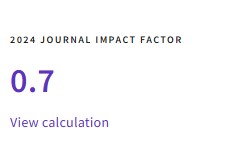El fairplay en edad escolar: programa “ponemos valores al deporte”
DOI:
https://doi.org/10.24310/riccafd.2019.v8i2.6446Keywords:
fairplay, programa de intervención, deporte base, astucia, engañoAbstract
El juego limpio en los últimos tiempos se ha visto comprometido por la aparación de conductas antisociales en el deporte como el engaño o trampa y la astucia. Debido a la gran repercusión que tiene en los jóvenes los entrenadores, cada vez son más las voces que proponen programas de intervención en dichos agentes. El objetivo del presente es describir pormenorizadamente el programa de intervención en entrenadores de diferentes disciplinas deportivas a través del programa “Ponemos valores al deporte”.
Downloads
Metrics
References
Gould D, Carson S. Life skills development through sport: Current status and future Directions. Int. Rev. Sport Exercise Psychol. 2008;1(1):58-78.
Marsh HW, Kleitman S. School athletic participation: Mostly gain with little pain. J. Sport Exerc. Psychol. 2003; 25(2):205–228.
Dias C, Cruz JF, Danish S. El deporte como contexto para el aprendizaje y la enseñanza de competencias personales, Programas de intervención para niños y adolescentes. Rev. Psicol. Deporte. 2000; 9(1):107-122.
Weinberg R, Gould D. Foundations of Sport and Exercise Psychology. Human Kinetics. 2010.
Ponseti FJ, Palou P, Borrás PA, Vidal J, Cantallops J, Ortega F, et al. El Cuestionario de Disposición al Engaño en el Deporte (CDED): Su aplicación a jóvenes deportistas. Rev. Psicol. Deporte. 2012; 21(1):75–80.
Sage LD, Kavussanu M, Duda JJ. Goal orientations and moral identity as predictors of prosocial and antisocial functioning in male association football players. J. Sports Sci.2006; 24(5):455-466.
Boixadós M, Cruz J. Relaciones entre clima motivacional y satisfacción, percepción de habilidad y actitudes de fairplay en futbolistas jóvenes. Rev. Psicol. Soc. Appl. 1999;1(9):45-64.
Olmedilla A, Ortega E, Almeida P, Lameiras J, Villalonga T, Sousa C, et al. Cohesión y cooperación en equipos deportivos. An. Psicol. 2011;27(1):232-238.
Coulomb-Cabagno G, Rascle O. Team sports players' aggression as a function of gender, competitive level and sport type. J. Appl. Soc. Psychol. 2006;36:1980-2000.
Kavussanu M, Seal AR, Phillips DR. Observed prosocial and antisocial behaviors in male soccer teams: Age differences across adolescence and the role of motivational variables. J. Appl. Sport Psychol. 2006;18(4):326-344.
Kavussanu M, Stamp R, Slade G, Ring C. Observed prosocial and antisocial behaviors in male and female soccer players. J. Appl. Sport Psychol. 2009;2(1):S62-S76.
Reddiford G. Cheating and Self-Deception in Sport. En M. J. McNamee y S. J. Parry (Eds), Ethics and Sport.1998; 225-239.
Lee M, Whitehead J. Ntoumanis N. Development of the attitudes to moral decision-making in youth sport questionnaire (AMDYSQ-1). Psychol. Sport Exerc. 2007;8(3):369-392.
Ntoumanis N, Standage M. Morality in sport: a self-determination theory perspective. J. Appl. Sport Psychol. 2009;21(4):365–380.
Gibbons SL, Ebbeck V. The effect of different teaching strategies on the moral development of physical education students. J. Teach. Phys. Educ. 1997;17(1):85-98.
Shields DL, Bredemeier BL. Advances in sport mortality research. Handbook of Sport Psychology. 2007; 662–684.
Palou P, Borrás PA, Ponseti FX, Vidal J, Torregrosa M. Intervención para la promoción de actitudes de fairplay en futbolistas cadetes. APUNTS. 2007;89:15–22.
Agüero-SanJuan S. El concepto de hacer trampa en el deporte organizado. Un inventario temático de problemas. FairPlay, Rev. Filos., Ética Derecho Dep. 2015; 3(2):155–181.
Sáenz A, Gimeno F, Gutiérrez H, Garay B. Prevención de la agresividad y la violencia en el deporte en edad escolar: Un estudio de revisión. Cuadernos de Psicología del Deporte. 2012;12(2):57-72.
Pinheiro V, Camerino O, Sequeira P. El fairplay en la iniciación deportiva, un estudio con entrenadores de fútbol. Retos. 2014;25:32–35.
Rodrigues J, Ferreira V. Coaches Behaviour on Trampoline. En Lidor, Eldar & Harari (Eds.), Bridging the Gaps Between Disciplines.1995; Israel: AIESEP World Congress.
Lamoneda J, Córdoba LG, Huertas FJ, García V. Efectos de un programa de juego limpio en los factores personales de la deportividad de jugadores de fútbol alevín en Cádiz. CCD. 2015; 29(10):113-124.
Sequeira P, Rodrigues JO. Feedback Pedagógico nos Treinadores de Jovens em Andebol. Rev. Treino Desportivo. 2000;10: 36-46.
Downloads
Published
How to Cite
Issue
Section
License
All the contents published in Revista Iberoamericana de Ciencias de la Actividad Física y el Deporte are subject to the Creative Commons Reconocimento-NoComercia-Compartirigual 4.0 license, the full text of which can be found at <http://creativecommons.org/licenses/by-nc-sa/4.0>
They may be copied, used, disseminated, transmitted and publicly exposed, provided that:
The authorship and original source of your publication (Journal, editorial and URL of the work) are cited.
They are not used for commercial purposes.
The existence and specifications of this use license are mentioned.

Copyright is of two kinds: moral rights and patrimonial rights. Moral rights are perpetual, inalienable, inalienable, inalienable, inalienable and imprescriptible prerogatives.
In accordance with copyright legislation, Revista Eviterna recognizes and respects the moral rights of the authors, as well as the ownership of the economic right, which will be transferred to the University of Malaga for dissemination in open access.
The economic rights refer to the benefits obtained by the use or disclosure of the works. Revista Iberoamericana de Ciencias de la Actividad Física y el Deporte is published in open access and is exclusively authorized to carry out or authorize by any means the use, distribution, disclosure, reproduction, adaptation, translation or transformation of the work.
It is the responsibility of the authors to obtain the necessary permissions of the images that are subject to copyright.
















9.png)
